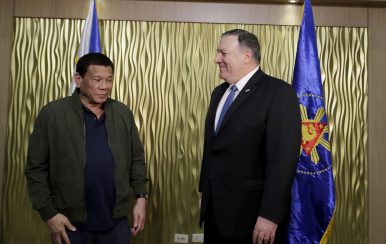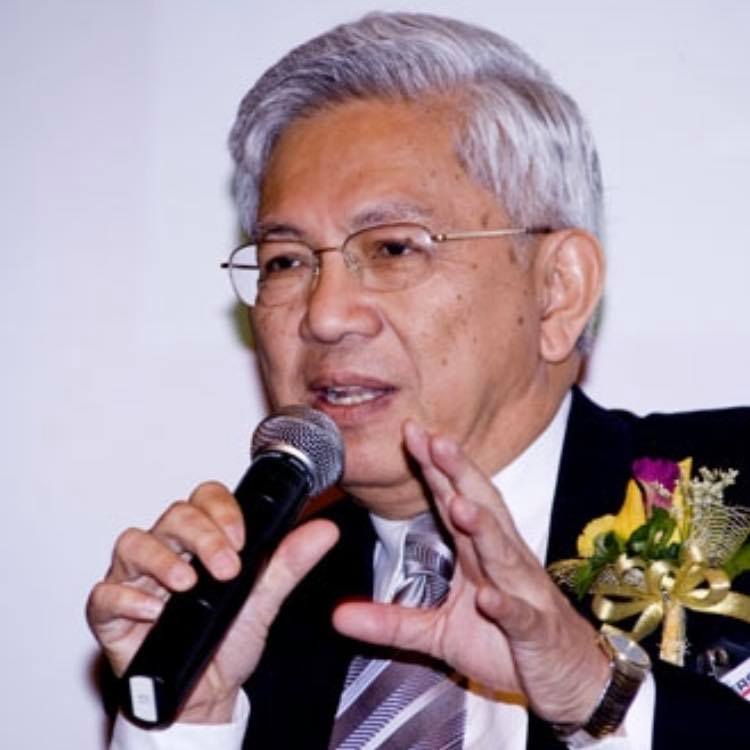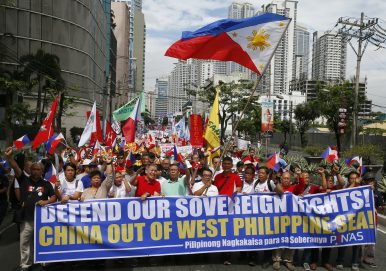Commentaries
The views expressed are the author's alone and do not constitute official positions of APPFI.
The views expressed are the author's alone and do not constitute official positions of APPFI.
In March, U.S. Secretary of State Mike Pompeo visited Manila, the capital of the Philippines. Publicly, and in no uncertain terms, he declared that the United States would honor its commitments under the Mutual Defense Treaty (MDT) should any Philippine vessel or aircraft be attacked anywhere in the South China Sea. Pompeo’s comments came amid uncertainties with respect to the alliance under Philippine President Rodrigo Duterte, including talk of a potential review of the alliance. Though international focus was on the U.S. commitment itself and its significance, Philippine responses to Pompeo’s comments were more mixed due to a range of factors and in spite of Washington’s best efforts to boost collaboration with Manila. But beyond this, the hope is that Pompeo’s commitment will jumpstart a broader effort by the two allies to reinvigorate the U.S.-Philippine alliance in the coming years.

Photo Source: The Diplomat

Photo Source: Howie Severino on Facebook
He would have celebrated his 83rd birthday last April 27. But Rodolfo C. Severino, Jr. passed away on April 19. He will be sorely missed.

In his most provocative statement yet, Philippine President Rodrigo Duterte urged China to stay away from a Philippine-controlled island in the South China Sea: “I am asking you, I will not plead or beg, but I’m just telling you, lay off the Pag-asa because I have soldiers there. And if you lay a finger on them, it’s another story. I will tell my soldiers, prepare for a suicide mission.”
Known for his pro-China overtures, Duterte’s warning came as quite a shock. Since assuming power in 2016, Duterte launched a radical shift on the Philippines’ South China Sea policy — downplaying a favorable 2016 arbitration ruling, threatening to scrap joint maritime patrols with the United States, and pursuing joint oil and gas exploration — that saw Manila cozying up with Beijing, amid overlapping territorial claims. Acting out of sheer pragmatism, Duterte aimed to strike a compromise with Beijing rather than embroil the Philippines in a war against China, which it cannot win.

Photo Source: Foreign Affairs
“Crimes against humanity” is about to be taken to a whole new level. Last March 15, former Philippine chief diplomat Albert del Rosario and former Ombudsman Conchita Carpio-Morales took President Xi Jinping and other top Chinese officials before the International Criminal Court (ICC). In a communication sent to Prosecutor Fatou Bensouda, the two former Filipino officials claimed that the Chinese leaders committed crimes against humanity for damaging the marine environment as a result of Beijing’s artificial island-building in the West Philippine Sea. The two also cited interference in the conduct of fishing activities. Such actions allegedly endangered the livelihood and food security of the Philippines and of other nations rimming the semi-enclosed sea. The two requested ICC to initiate preliminary examination and subsequent investigation.